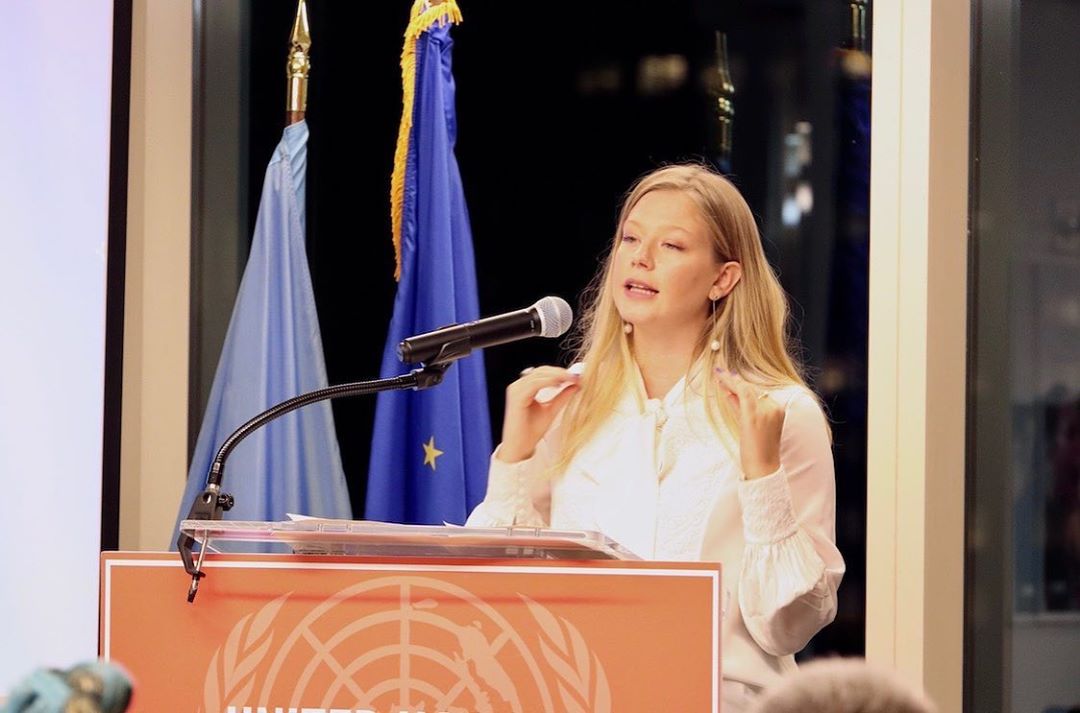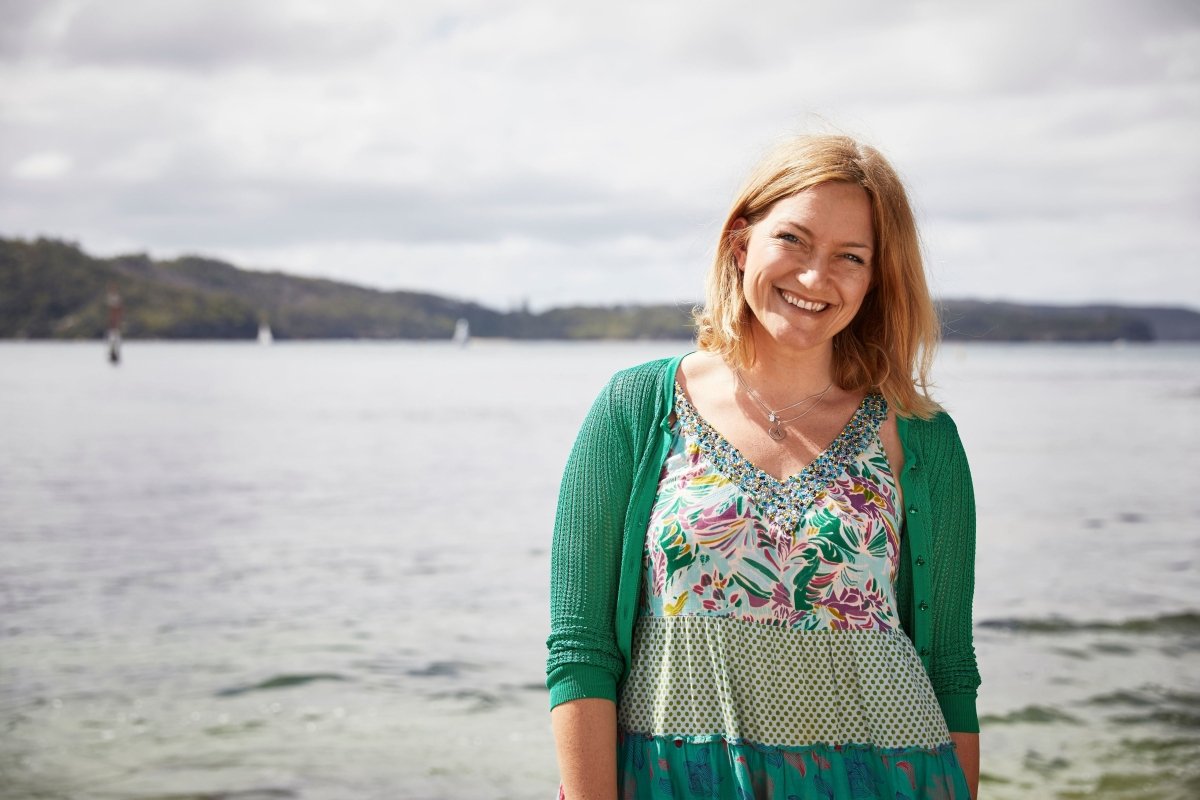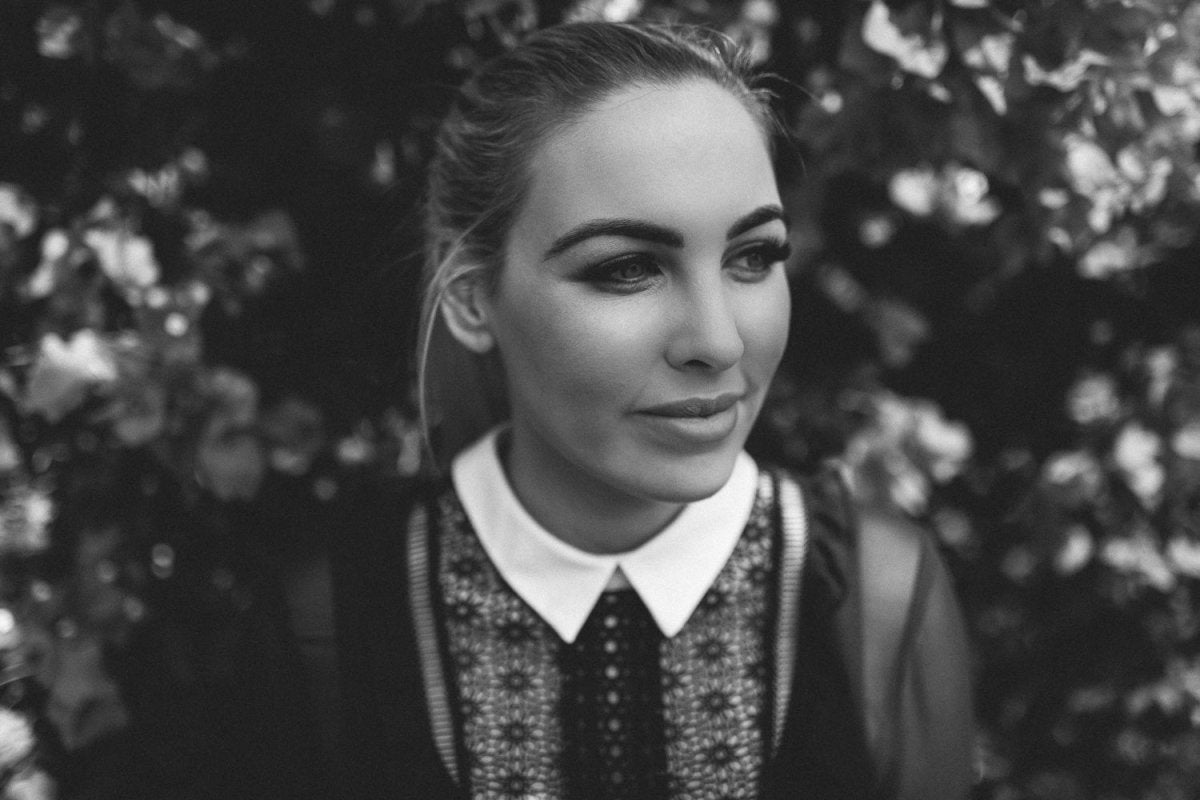#MOTHERMATE GRACE FORREST
·

·
What is your approach to beauty? And do you choose natural beauty? If so, why?
Less is more! For me, my approach to beauty really starts and finishes with the pursuit of clear healthy skin and hair. As far as beauty goes beyond that I just like tinted brows and a strong lipstick if I need a bit of extra confidence for my day.
I choose natural beauty wherever possible as our skin is our largest organ, and we should be avoiding smothering it with chemicals wherever we can! I use an oil face wash and face oil by Votary, which I love! Some Sodashi products for blemishes and balance and Mother SPF.
What does purchasing “ethically and sustainably” mean to you and why is it so important for people to do so?
It means buying something that didn’t harm another person or the environment in the process of its production. Or better yet, buying something that actually does good by the people who make it and the environment in which it is created and exists. None of us should be able to buy something that comes at this cost, yet it is absolutely the norm in this globalised economy we live in.
I think people (consumers) have been hoodwinked into thinking that information about the origins of our products isn’t something we really need, as long as we trust “the brand” behind it. This is ridiculous. Current beauty and fashion markets are awash with greenwashing, and the only information we can really trust is true transparency throughout supply chains. Look for companies with ‘conscious collections’ as an example. While some might celebrate this, I would urge people to instead ask “Then what the hell is everything else”?
If a brand does not disclose how or where a product is made, you should assume that it is leaning on exploitative labour and murky environmental standards with minimal (if any) protections.
The fact that there are more people living in slavery today than any other time in human history, the fact that over 70% of these victims are women and girls, and the fact that many of these women are being exploited by big fashion and beauty brands we benefit from is why everyone should care about this issue.
I don’t think any of us can truly call ourselves feminists, if we don’t care about the women who make the goods we all use every day.
What should consumers look for in brands if they want to start supporting ethical and sustainable brands but they are not sure where to begin?
Transparency; where and how products are made.
Rate of production; models of fast fashion and excessive production can never be a friend of the environment and 9/10 don’t pay their workers a living wage. Look for brands that produce quality over quantity.
Values; Usually if the owner / founder of a brand cares about ensuring ethical and sustainable production it will filter down the entire company. Where the wheels start to fall off is where you see a last minute PR greenwashing campaign, where you can tell the company has brought someone in for damage control to clean up an otherwise murky track-record. While this can be ok for setting the record straight, I would advise looking to brands who have these values built into their DNA. Being able to shop by quality, not just in the product itself but in the lives of the people who made it, is a deeply powerful way to shop by your values.
Mother, for example, is a company that was born out of deep frustration with the existing market and therefore, necessity. From the get-go Tandi has been committed to ensuring (and creating) a new path for standardised SPF. One which is natural, made fairly and allows us and our loved ones to be protected from harmful rays, while not putting any nasties on our bodies.
As a known ocean lover, how should beauty brands (SPF in particular) better protect our oceans?
Oh god, this is a bit of a depressing question. So few people understand the devastating impact that our personal products can have on reefs and ocean environments.
Its amazing to see so many people, especially young people, up in arms and marching against governments and big corporations on the need for them to better protect our natural environment. However this kind of macro activism must go hand-in-hand with micro personal activism. One such action is ensuring our SPF products (that we should be wearing absolutely every day and certainly every time we swim) aren’t harming the very environment we are there to enjoy.
Another way is ensuring the clothes you wear, food you eat and coffee you drink isn’t being produced under harmful and exploitative conditions that are contributing to the degradation of our natural environment.
With all the travel you do for work, how do you switch off? Any life hacks?
Lol still working on this. But this year has certainly taught me the power of properly grounding where you are and investing in things you love outside of your work.
I love to cook, and am passionate about using seasonal local produce wherever possible. Cooking for me is the most simple way to show someone you love them, and as long as I have the space to cook at my own pace (control freak alert) I find it super relaxing and joyful.
The other one – as cliché as it sounds – is being in nature. PC (pre-covid) I was spending up to 7 months of every year overseas with work, and flying a lot. This in and of itself is horrific for your body (and skin!), but it also makes it really hard to feel grounded when you’re semi-always battling jetlag and re-adjusting into different cultures and climates. My official term for it is a Time zone Milkshake. However, getting in the sun is one of the few things which naturally re-sets your body clock and I find getting in the ocean / generally being away from a city environment helps hugely with this as well.
Even on a good day my screen time is fairly horrific – between social media and an email cycle that never turns off due to the international nature of our work– I know being away from my phone helps me switch off hugely. If it’s on me I always know there is something to be done burning a hole in my pocket!
Best beauty / health advice you’ve ever received?
Probably that you can’t pour from an empty cup. Self-care and proactive healthcare is not an indulgent ‘nice to have’, it’s an essential part of resilience building and self-nurturing that allows you to be better at everything you do.
But also: don’t touch your face, double cleanse, drink all the water.
Less is more! For me, my approach to beauty really starts and finishes with the pursuit of clear healthy skin and hair. As far as beauty goes beyond that I just like tinted brows and a strong lipstick if I need a bit of extra confidence for my day.
I choose natural beauty wherever possible as our skin is our largest organ, and we should be avoiding smothering it with chemicals wherever we can! I use an oil face wash and face oil by Votary, which I love! Some Sodashi products for blemishes and balance and Mother SPF.
What does purchasing “ethically and sustainably” mean to you and why is it so important for people to do so?
It means buying something that didn’t harm another person or the environment in the process of its production. Or better yet, buying something that actually does good by the people who make it and the environment in which it is created and exists. None of us should be able to buy something that comes at this cost, yet it is absolutely the norm in this globalised economy we live in.
I think people (consumers) have been hoodwinked into thinking that information about the origins of our products isn’t something we really need, as long as we trust “the brand” behind it. This is ridiculous. Current beauty and fashion markets are awash with greenwashing, and the only information we can really trust is true transparency throughout supply chains. Look for companies with ‘conscious collections’ as an example. While some might celebrate this, I would urge people to instead ask “Then what the hell is everything else”?
If a brand does not disclose how or where a product is made, you should assume that it is leaning on exploitative labour and murky environmental standards with minimal (if any) protections.
The fact that there are more people living in slavery today than any other time in human history, the fact that over 70% of these victims are women and girls, and the fact that many of these women are being exploited by big fashion and beauty brands we benefit from is why everyone should care about this issue.
I don’t think any of us can truly call ourselves feminists, if we don’t care about the women who make the goods we all use every day.
What should consumers look for in brands if they want to start supporting ethical and sustainable brands but they are not sure where to begin?
Transparency; where and how products are made.
Rate of production; models of fast fashion and excessive production can never be a friend of the environment and 9/10 don’t pay their workers a living wage. Look for brands that produce quality over quantity.
Values; Usually if the owner / founder of a brand cares about ensuring ethical and sustainable production it will filter down the entire company. Where the wheels start to fall off is where you see a last minute PR greenwashing campaign, where you can tell the company has brought someone in for damage control to clean up an otherwise murky track-record. While this can be ok for setting the record straight, I would advise looking to brands who have these values built into their DNA. Being able to shop by quality, not just in the product itself but in the lives of the people who made it, is a deeply powerful way to shop by your values.
Mother, for example, is a company that was born out of deep frustration with the existing market and therefore, necessity. From the get-go Tandi has been committed to ensuring (and creating) a new path for standardised SPF. One which is natural, made fairly and allows us and our loved ones to be protected from harmful rays, while not putting any nasties on our bodies.
As a known ocean lover, how should beauty brands (SPF in particular) better protect our oceans?
Oh god, this is a bit of a depressing question. So few people understand the devastating impact that our personal products can have on reefs and ocean environments.
Its amazing to see so many people, especially young people, up in arms and marching against governments and big corporations on the need for them to better protect our natural environment. However this kind of macro activism must go hand-in-hand with micro personal activism. One such action is ensuring our SPF products (that we should be wearing absolutely every day and certainly every time we swim) aren’t harming the very environment we are there to enjoy.
Another way is ensuring the clothes you wear, food you eat and coffee you drink isn’t being produced under harmful and exploitative conditions that are contributing to the degradation of our natural environment.
With all the travel you do for work, how do you switch off? Any life hacks?
Lol still working on this. But this year has certainly taught me the power of properly grounding where you are and investing in things you love outside of your work.
I love to cook, and am passionate about using seasonal local produce wherever possible. Cooking for me is the most simple way to show someone you love them, and as long as I have the space to cook at my own pace (control freak alert) I find it super relaxing and joyful.
The other one – as cliché as it sounds – is being in nature. PC (pre-covid) I was spending up to 7 months of every year overseas with work, and flying a lot. This in and of itself is horrific for your body (and skin!), but it also makes it really hard to feel grounded when you’re semi-always battling jetlag and re-adjusting into different cultures and climates. My official term for it is a Time zone Milkshake. However, getting in the sun is one of the few things which naturally re-sets your body clock and I find getting in the ocean / generally being away from a city environment helps hugely with this as well.
Even on a good day my screen time is fairly horrific – between social media and an email cycle that never turns off due to the international nature of our work– I know being away from my phone helps me switch off hugely. If it’s on me I always know there is something to be done burning a hole in my pocket!
Best beauty / health advice you’ve ever received?
Probably that you can’t pour from an empty cup. Self-care and proactive healthcare is not an indulgent ‘nice to have’, it’s an essential part of resilience building and self-nurturing that allows you to be better at everything you do.
But also: don’t touch your face, double cleanse, drink all the water.



Comments